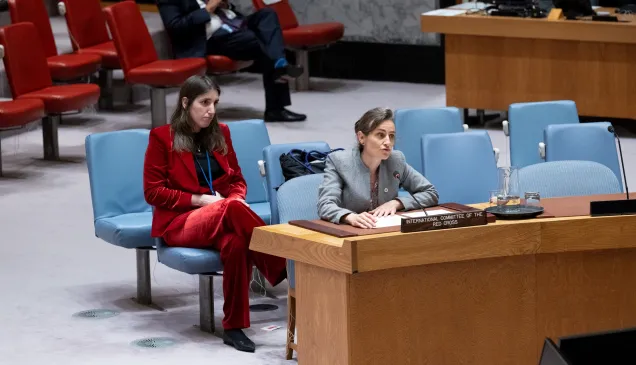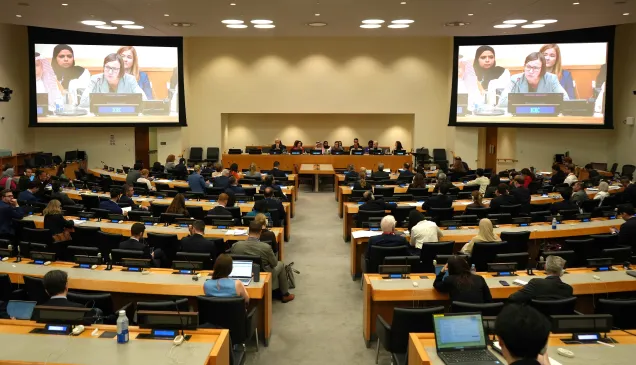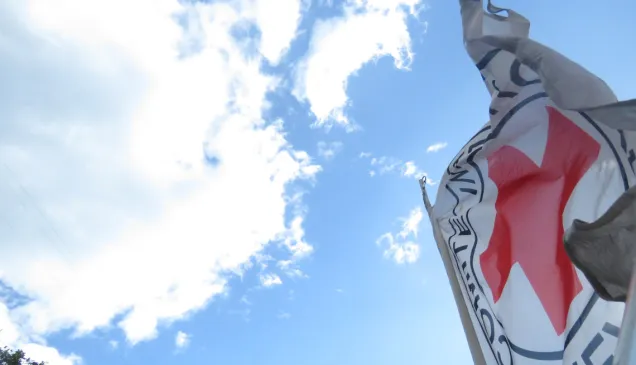Madam President, Excellencies,
The International Committee of the Red Cross welcomes today's important debate on the impact of climate change and food insecurity on the maintenance of peace and security.
Climate change affects everyone, but not equally.
As we have heard from the briefers, climate change worsens vulnerabilities, deepens inequalities and can exacerbate factors that can contribute to tensions.
In many places where the ICRC works, climate extremes are compounding the impact of armed conflicts on agricultural production and are increasing food insecurity.
Beyond the direct impact of climate hazards on farming activities, climate extremes may also intensify competition for scarcer resources. This happens against a backdrop of very limited adaptive capacities, as people, systems, and institutions struggle to survive the devastation of war.
Climate change, food insecurity, and conflict are thus mutually reinforcing. For now, climate action in conflict settings is particularly weak, because of the challenges attached to enabling comprehensive climate adaption in unstable environments.
This needs to urgently change, if we are to collectively live up to the commitment to leave no one behind.
Our call today is clear: a better respect for international humanitarian law in armed conflicts will reduce the cost of war. It will help people cope with the calamities of war, while sparing the natural environment in today's dramatically destructive conflicts.
More specifically, we need to see an urgent shift in how wars are fought, so that:
First: damage inflicted to the environment is reduced.
People depend on the environment and predictable weather for food and water. Farmers, herders, and fishing communities depend on it for their livelihoods.
When the environment is damaged in war, and food and economic insecurity intensify, physical and mental health deteriorate as well. IHL contains a range of obligations that set legal limits on the damage that warring parties can inflict on the environment.
Ensuring respect for these IHL rules can limit environmental degradation and thus reduce the harmful consequences it can generate, including food insecurity. In the face of a triple planetary crisis, this is particularly critical.
Second: food provision and access to essential resources are guaranteed throughout conflict.
While parties' have the primary responsibility to ensure that civilians' basic needs are met, IHL requires them to permit and facilitate rapid and unimpeded passage of humanitarian relief. IHL prohibits attacking or destroying civilian objects such as marketplaces, civilian transport and financial infrastructure, and land.
It gives specific heightened protection for objects indispensable to civilians' survival, including crops, livestock, and drinking water installations. IHL furthermore strictly prohibits starvation of civilians as a method of warfare. These are only few examples of the wide range of IHL rules relevant to food security in situations of armed conflict.
Third: everything must be done to prevent situations from spiraling into extreme food crises.
By mid-2023, over 110 million people remained displaced, which is more than any other time since WWII; for most, access to the basics remains a daily fight, and many are struggling to provide for their entire family as their forced displacement barely offers safety, let alone food security. Food pipelines are too often targeted or used for military tradeoffs, forcing civilians on the move into unsustainable and desperate situations.
Even after the guns go silent, impacted regions struggle to recover from the devastating legacy of wars: in many places, rebuilding livelihoods are hampered by unexploded ordnance, crippled economies and repeated climate hardships.
Madam President,
Throughout the countries where we work, there is no shortage of resolve to find ways to cope with the changing climate and its compounding consequences. But without decisive support from the international community and strong compliance with IHL, things will only get worse and existing vulnerabilities and crises will multiply.
We must ensure that this is not the case and that those most at risk remain our urgent priority.
Thank you.




